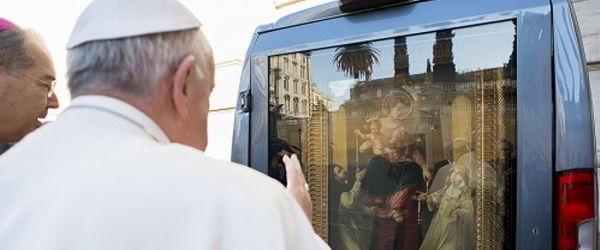Leaders in a wide variety of fields — including the superintendent of the Los Angeles Unified School District, a flight commander in the U.S. Air Force, a former gang member, an NFL scout, and an authority on mentoring — assembled April 6 at Loyola Marymout University for an innovative educational forum.The first TEDx conference, held on the Westchester campus, enabled participants to share their own stories of success as well as their ideas on education. Following the TEDx mission of “ideas worth sharing,” the event organized by Teach for America students had a single focused goal — to create a space for an innovative exchange of ideas to transform public schools and school systems in Los Angeles. One of the first presenters was Michael Conner, who talked about why he joined an L.A. gang. “It had a purpose and we did missions together,” he said. “The gang supported me. And then two years later I was the head of a small clique.”But that street success soon turned to tragedy. Sitting in a car with his girlfriend and a fellow homey, two rival gangbangers approached. At close range, one started shooting with an AK-47 assault rifle, killing both passengers but sparing Conner. The next day his dad took him to Homeboy Industries, where founder and director Jesuit Father Greg Boyle gave him a job on the spot. Today the 23-year-old is a senior vice president of A&R at MIH Entertainment Group, working alongside music executives at renowned companies like Atlantic Records and Warner Music. “What I learned about team work from the gang culture helped lead me to my successful career,” he said. “But I never thought I’d be where I am.”Captain Casey Whitson, U.S. Air Force Operations Flight Commander, AFROTC Detachment 060 at the University of Southern California, said she found her success by “embracing discipline” at the U.S. Air Force Academy in Colorado Springs. “Discipline is not your enemy; discipline is your ally,” she stressed, wearing her decorated blue uniform. “And when you embrace discipline, things come natural. How you do anything is how you do everything. So I want you to go home and do something you haven’t done.”Attending the all-day conference was a mix of mostly students and educators. It featured not only speakers from three sessions, but also videos and live performances. Javon Johnson, a spoken-word artist who holds a Ph.D. from Northwestern University, rendered a hip-hop rhyme scheme that began, “On the Day Barack Hussein Obama was elected president,…” Kimberly Monks, a sophomore at Vanguard University in Orange County and aspiring motivational speaker, easily alternated between singing and speaking about poverty in America. She said what helped her find a whole different world was an English teacher “who cared.” Ellen Ensher, a professor of management at LMU, spoke passionately about how vital it was for a young person to find a mentor. The career expert said getting one was like “winning the lottery.” “But first you have to know yourself and how you’re growing and what you want,” the frequent consultant to organizations pointed out. “What are you good at? What makes you awesome? “How do you get one? I met mine right out of college at a failed job interview,” she recalled. “But you have to have the courage to connect. So you need to get started. A mentor can help you get to where you want to be faster.”One of the final speakers was LAUSD superintendent John Deasy, who began his talk sitting in a school desk. He maintained there were three parts to changing a school system. “First, nothing is more important for kids than the people we put around them in school — teachers, principals, coaches, counselors and others.”Then standing, the former Aspen, Broad and Annenberg fellow said the second component was “how do you run a system.” And the final part was having high quality public schools that serve the inner city as well as affluent communities. “We can’t have schools based on zip codes,” he declared. The superintendent reported that schools in the Los Angeles Unified School District have the highest graduation rate they’ve ever had. But he also said that wasn’t good enough for the 909,000 students these local elementary and secondary schools serve. “Transforming schools today isn’t easy,” he observed. “We have homeless students, undocumented students plus young moms and dads attending our schools. So change is happening fast in Los Angeles, and we need to be ahead of those changes. One example is the former Ambassador Hotel, which now has six independent schools on the premises. “It’s not easy work. And you can’t do it if you don’t have courage,” he added. “Shifts happen in education. And I want you to be part of our creative shift.” {gallery width=100 height=100}gallery/2013/0419/ted/{/gallery}

